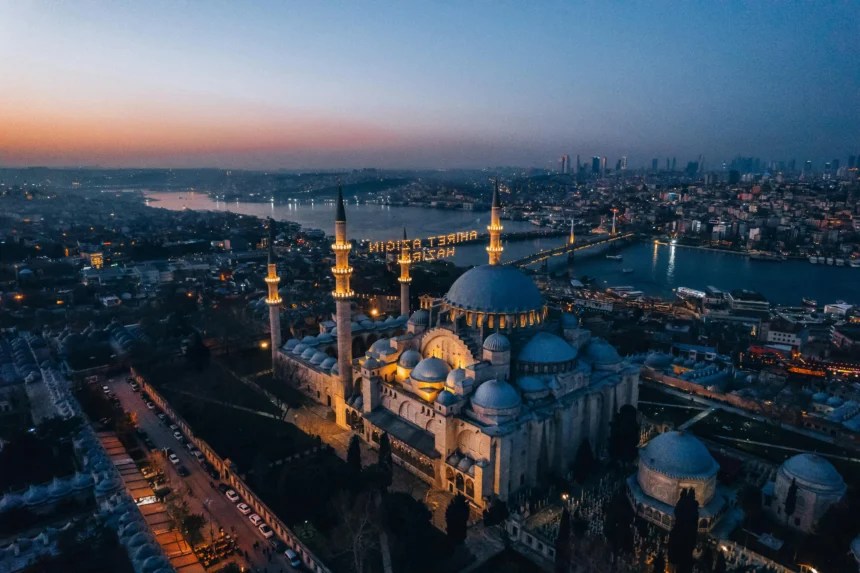Introduction
The term “utanmaz Türklere” is more than just a phrase in Turkish society. It reflects a complex intersection of tradition, modernity, identity, and social change. By dissecting its origins, contemporary uses, and cultural impact, we can understand how it has shaped, and continues to shape, the debates within Turkey.
What Does “Utanmaz Türklere” Mean?
“Utanmaz Türklere” is a phrase often used in a derogatory manner to describe individuals who defy social expectations, particularly around behaviors related to modesty, family values, or nationalism. The phrase “utanmaz” translates to “shameless” or “without shame,” while “Türklere” refers to “to Turks” or “Turkish people.” In this context, it identifies a perceived divergence from what many consider the traditional Turkish moral compass.
- Utanmaz means shameless or without shame.
- Türklere refers to Turkish people.
- The term is often used to describe people who deviate from traditional norms.
Historically, this term has been used to describe people whose behaviors or lifestyles are seen as contrary to the deep-rooted values of Turkish culture. However, over time, it has evolved into a more complicated term that reflects ongoing debates within Turkish society about modernity, cultural identity, and globalization.
Origins of the Term
The origins of the phrase lie deeply embedded in Turkish cultural history. For centuries, Turkish society has been shaped by an intricate balance of Islamic principles, national identity, and rural-urban divides. The term “utanmaz Türklere” can be traced back to the conservative factions of Turkish society, which view behaviors that deviate from tradition as a form of disrespect.
- The term originates from conservative factions.
- It reflects a reaction to the modernization of Turkish society.
- It highlights the rural-urban divide in Turkey.
However, as urbanization took hold and modernization spread, these traditional values began to be challenged. Young people in cities like Istanbul, Ankara, and Izmir, exposed to global cultural shifts, embraced new ideals—many of which were labeled as “shameless.” The term, thus, serves as a reactionary tool to label those who deviate from these prescribed norms.
The Role of “Utanmaz Türklere” in Turkish Society
A Changing Society
Turkey, in recent years, has experienced significant shifts in its social fabric. Historically conservative values have begun to coexist with more liberal, globalized influences. As Turkey’s cities become more urbanized and connected to the wider world, younger generations are increasingly adopting values and behaviors that are seen as “shameless” by older generations.
- Traditional and modern values are clashing.
- Urban youth are embracing global cultural shifts.
- The generational divide is becoming more pronounced.
These shifts manifest in various aspects of life. Young people in urban settings increasingly embrace different lifestyles—be it alternative sexual orientations, gender roles, or public displays of affection—that are often labeled as scandalous or disrespectful to Turkish traditions. The “shameless Turks” are often seen as disrespecting national values, family customs, and religious norms. This conflict between progressivism and conservatism has created a cultural tension, with the label “utanmaz Türklere” being used as a moral judgment.
Social Media Influence
In the digital age, social media platforms like Instagram, Twitter, and TikTok have become arenas for contesting cultural norms. Influencers, activists, and ordinary individuals can now broadcast their personal beliefs and lifestyles to a wide audience, sometimes sparking intense debates over what constitutes “appropriate” behavior in Turkish society.
- Social media platforms amplify ideological divides.
- Social media acts as a battleground for cultural values.
- “Shamelessness” is often propagated through digital media.
Through social media, young people in Turkey share personal experiences related to gender, identity, and politics, presenting narratives that challenge traditional viewpoints. Those who use these platforms to voice progressive ideals often face harsh criticism from conservative factions, who accuse them of being part of the “shameless” trend. Social media, thus, becomes a battleground for the ideological struggle between the old and new guard in Turkey.
Political Implications
The term “utanmaz Türklere” also has political weight. In Turkey’s political climate, which has become increasingly polarized in recent years, discussions about cultural values often intersect with political ideology. Conservative leaders use the “shameless” label as a tool to consolidate power among traditionalist factions, while progressive leaders use it to advocate for change and greater freedom of expression.
- Politics plays a central role in how the term is used.
- It is a tool for ideological polarization.
- The “shameless” label has political connotations.
Political leaders often frame the debate between “shamelessness” and “traditional values” in stark terms. The former is frequently associated with Westernization, secularism, and liberal ideologies, while the latter is linked with national pride, family values, and religion. In this way, “utanmaz Türklere” becomes a term not just for social criticism but also a tool in the ongoing political struggle for control over Turkey’s future.
Cultural Impact of “Utanmaz Türklere”
A Tension Between Tradition and Modernity
The most defining aspect of the “utanmaz Türklere” label is the tension it encapsulates between Turkey’s traditional and modern cultures. For generations, Turkish society was guided by strong traditions regarding family structure, gender roles, and public behavior. But with the rise of globalization, new values—such as gender equality, individual rights, and freedom of expression—have found their way into Turkish society.
- The term represents a clash of values.
- Traditional values emphasize modesty and family.
- Modern values prioritize individuality and freedom.
This growing divide has caused deep cultural fractures, with one side clinging to traditional values while the other embraces modernity. The “utanmaz Türklere” label serves to underscore this divide. It emphasizes the perceived disrespect for Turkish values exhibited by those who embrace more liberal ideals.
A New Generation of Turks
The “utanmaz Türklere” label often refers to younger generations of Turks who challenge traditional norms. These young people are not just influenced by Western culture; they are active participants in a global cultural exchange, facilitated by the internet and social media. They see no shame in advocating for progressive causes, such as LGBTQ+ rights, freedom of speech, and gender equality.
- Young Turks embrace progressive values.
- They advocate for LGBTQ+ rights and gender equality.
- The new generation challenges old traditions.
The Influence of Globalization
Globalization has played a major role in shaping Turkish culture and society. With the increasing availability of foreign media, travel, and education, many young Turks have been exposed to global ideas that challenge Turkish traditions. As globalization spreads, it introduces a new way of thinking, which often clashes with established norms.
- Globalization introduces new values and ideas.
- It challenges traditional cultural and social norms.
- Younger generations are more open to global influences.
The term “utanmaz Türklere” reflects this tension. As Turkish culture becomes more interconnected with the global community, some view these external influences as dangerous and a threat to national identity. Others, however, see them as part of Turkey’s modernization, embracing these changes as signs of growth and freedom.
Table: The Shifting Landscape of “Utanmaz Türklere”
| Aspect | Traditional View | Modern View |
| Family Values | Strong emphasis on patriarchal family structures | More fluid interpretations of family roles |
| Gender Roles | Fixed roles for men and women | Gender equality and fluidity in roles |
| Public Behavior | Modesty, respect, and conservatism | Expression of individuality, freedom |
| Political Ideology | Nationalism, conservatism | Secularism, progressivism |
| Social Media | Viewed with skepticism and mistrust | Platform for activism and self-expression |
The Future of “Utanmaz Türklere”
As Turkey continues to evolve, the term “utanmaz Türklere” may gradually lose its negative connotation. The younger generation, with its progressive values and global mindset, is likely to become more dominant in shaping the nation’s future. As this happens, there may be a shift in how “shamelessness” is viewed. What is now seen as rebellion might soon be considered a necessary part of social progress.
- The future may see a shift in perceptions of “shamelessness.”
- Younger generations will influence the future cultural landscape.
- Modern views are likely to become more dominant.
Moreover, as Turkey’s place in the global community solidifies, the country’s traditional views may start to evolve. The younger generation, already in positions of power and influence, may push for more inclusive and progressive policies that align more closely with international standards of human rights and freedom.
Conclusion
The concept of “utanmaz Türklere” reveals the deep cultural divides in Turkey, where tradition and modernity collide. It serves as a reflection of the shifting values within Turkish society, where younger generations are challenging the status quo and embracing new ideas. While the term has often been used to criticize and condemn, it also highlights the struggle for individual freedoms, expression, and the evolving identity of modern Turkey.
As Turkey continues to modernize, the label may lose some of its negative connotations and evolve into a more nuanced reflection of the nation’s ongoing cultural transformation. The future of “utanmaz Türklere” lies in the hands of a new generation, who will shape the country’s identity in ways that are yet to be fully understood.
FAQs
What is the meaning of “Utanmaz Türklere”?
The term “Utanmaz Türklere” refers to individuals in Turkey who are perceived as rejecting traditional cultural values, often related to modesty, family norms, or national pride. It is used pejoratively to describe people who are seen as “shameless” for their progressive behavior.
Why is the term “Utanmaz Türklere” considered derogatory?
The term is derogatory because it is used to criticize those who deviate from traditional norms. It reflects the discomfort some people feel about the changing social and cultural landscape in Turkey, particularly regarding modernity and globalization.
How has the meaning of “Utanmaz Türklere” evolved over time?
Initially, the term was used solely to describe people who defied conservative values. However, as Turkey has modernized and younger generations have embraced more liberal ideals, the term has come to represent a broader ideological conflict between traditionalism and progressivism.
How does “Utanmaz Türklere” reflect the generational divide in Turkey?
The term highlights the divide between older generations, who tend to uphold traditional Turkish values, and younger, more liberal generations who advocate for greater freedom of expression, gender equality, and individual rights. This generational tension is a key feature of modern Turkish society.
Is “Utanmaz Türklere” used in a political context?
Yes, the term is often used in political debates, especially to reinforce ideological divides. Conservative political figures may use it to criticize liberal movements, while progressives may use it to highlight the need for social change and greater personal freedoms.
Can the term “Utanmaz Türklere” lose its negative connotation?
As Turkey continues to evolve and younger generations gain more influence, it is possible that the term will lose its negative connotation. What is now seen as “shamelessness” could eventually be viewed as a sign of empowerment and social progress.






